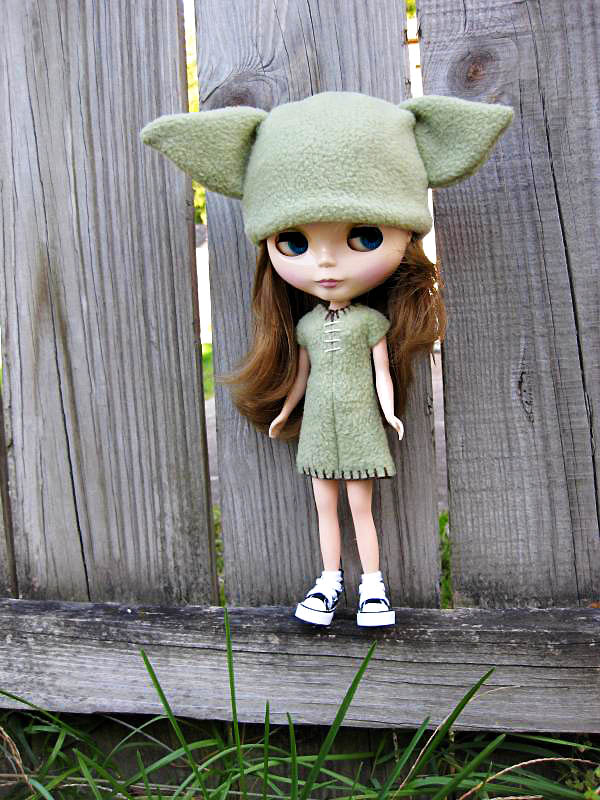I have a serious dilemma: I want to be perfect. Or at least
I want you to think I’m perfect. I’d
like to be known as the girl who never says an unkind word, the one who always
does the “right” thing. Whether it be paying my taxes, parenting my children,
or driving like I really do give a damn about the person in the next car, I’d
like for you to believe that I’m the model citizen. And the ridiculous thing is
that I probably put less energy in to being
a model citizen than I do in making you think
I am. It’s all about image management.
I grew up with the Yoda mentality, i.e. “Do or do not. There
is no try.” It was that black and white. The unspoken but very real setup was
that you either hit the mark or you were a failure. Problem is, the mark
constantly changed and there was never any warning or explanation for the
shift. I can’t even begin to recount how many times I doubled and redoubled my
efforts to avoid a verbal flogging, but I never could be perfect enough to
avoid it altogether. The problem, of course, wasn’t my imperfection. All kids
are imperfect, and all kids are kids. It
was the grownups’ expectations that were off the mark, but when you’re a kid
you take your cues on reality from the grownups. I started believing pretty
early on that if I made a mistake it meant that I was fatally flawed. And when
you’re fatally flawed, people abandon you. For me, that is undoubtedly the crux
of the matter.
Trying to be perfect is all kinds of crazy. For starters,
it’s impossible. There’s no way any one of us can make a hundred on the life
test. We’re going to hurt and disappoint each other, and I think the key is in
owning that and making whatever amends are necessary. That’s the high road. But I don’t like to own it; I’d rather hide
or make excuses. Why? Well, there’s the yucky ego part, meaning that my pride
doesn’t want to bow to anyone else. But the worst of it for me is that it feels
like confessing I’m “bad.” I didn’t do
something bad, I am bad. And that
mindset, according to self-help guru Brene Brown, is the hallmark of shame. I
can tell you firsthand that shame sucks. It’s like being boiled in toxic
chemicals.
Imagine a paradigm of grace and tolerance, where we all admit that we’re
flawed and sometimes do stupid shit. Then we could get on with our lives and
look at things more objectively when imperfection rears its ugly head.
Unfortunately I think the M.O. on this planet is to pretend that we’re not
infected with the universal human ailment, that is, imperfection. We minimize our
behavior or actions to the point of becoming smoke-and-mirrors experts. Just
call us David Copperfield; we’re all professional illusionists to some degree.
So I’m here to confess that I’m not the most virtuous kid on
the block (but then you probably already knew that.) I’ve been known to gossip or lie or betray a confidence. I’ve said
hurtful things to others. I’ve let people down. And I can be quite judgmental.
But that doesn’t negate what Abraham Lincoln called “the better angels of our
nature.” I can be very self-sacrificing, kind, compassionate, trustworthy,
generous and accepting. And when I do those things, I do them really well. *
Perhaps the problem isn’t that others abandon me when I show
my humanity; maybe it’s that I abandon myself. It’s the equivalent of standing
on the side of the road and hurling stones at myself as I’m walking by. When I beat
myself up for failing or hurting others, or for making a mistake, the self-talk
borders on vicious. At its worst it’s self-hatred on steroids. Maybe the most disturbing thing about it all is how cloak-and-dagger the mental brutality can be. Quite often I'm not even aware of the dialogue going on in the background of my mind. So I’m trying to
learn how to own my blemishes without self-destructing, how to humbly confess
my failures to others without sentencing myself to death row. I don’t know…
maybe for some people that’s not so hard. I think if I spent less time trying to control your perception of me, and more time on readjusting my perception of myself, I'd be a lot happier. Unfortunately, that’s
probably the taller order.
* A song I wrote in 2004 nailed this concept for me. As I said in my last post, we're all a mixed bag. Here's a link if you're interested in hearing Here I Am, Anyway.
Photo Credit: Anneheathen http://www.flickr.com/photos/annethelibrarian/

